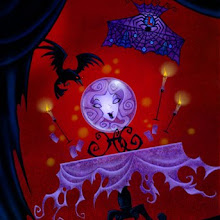 There was a copy of Atlantic in the first class compartment of the plane, so just for the hell of it, Evelyn flipped to her poem. She was slightly embasrrased, but she had to laugh at the thought of Ricky Ford Alton reading it on location on the high seas, unable or unwilling to call her and learn its real meaning, this high school poem of hers about faithlessness and infidelity. He must have been mortified when the crew got hold of it. She was surprised that Atlantic had wanted to use it, but they called her agent asking for something, and she didn’t have anything else to offer them. She sent it in almost as a joke.
There was a copy of Atlantic in the first class compartment of the plane, so just for the hell of it, Evelyn flipped to her poem. She was slightly embasrrased, but she had to laugh at the thought of Ricky Ford Alton reading it on location on the high seas, unable or unwilling to call her and learn its real meaning, this high school poem of hers about faithlessness and infidelity. He must have been mortified when the crew got hold of it. She was surprised that Atlantic had wanted to use it, but they called her agent asking for something, and she didn’t have anything else to offer them. She sent it in almost as a joke.LAMENT OF THE WIFE/GIRL WHEN THE HUSBAND IS SINGING ON THE ROAD
Is it all right for me to doubt his faithfulness?
How long can the man of my dreams go on without me?
I wonder, what did Penelope think?
No, my Ulysses is not at sea (a sea of people maybe,
Yes, I know what I’m talking about, the women who wait beside the stage,
The ones who wait behind the amplifiers? I’ll tell you a secret:
They have no ears.
In my dreams, I whisper in their faces
“It’s okay: he’s not saying anything anyway.”)
--So why don’t I meet you, babe, in a hotel room,
I’ll fly there, fly you once around the room, and then I’ll fly home.
I’ll be both your wife and the girl with the band,
(which makes the wife part really unnecessary, doesn’t it?)
But I’ll still have my ears,
So remember my name.
To her, the poem had “adolescent girl” written all over every line, and she wondered why her agent and the editors hadn’t seen right through it. Evelyn closed the magazine and stuffed it deep into the seat-back pocket in front of her. She had lost interest in reading what other people had to say since her own voice had become so fragile and intangible. Her present state of mind afforded her little more than sentence fragments. She could easily blame it all on her mother’s dying, but her uneasiness had been around much longer than these three weeks. For almost a year, she’d begun each day with a vague sense of anxiety, unfocused and irrational, as her therapist would say, that attached itself to nothing and no one. At first, she had used it as the seed of her writing. She had pumped out a couple of screenplays, an unfinished novel, and some short stories she would really rather never saw the light of day, but not a single poem. Then one day the vagueness became solid paralysis, like a steel door slamming down between her and the computer screen. She cramped up so she couldn’t make another keystroke. It wasn’t until two weeks later, three thousand miles away, that her mother suddenly dropped dead.So no, Evelyn’s problem had nothing to do with her grief. It had a lot to do, however with this man, not Ricky Ford but the one whose voice she heard in her head off and on. Lately, she hadn’t been hearing him at all. It was obvious—and this was the real reason why she didn’t go back to her therapist after returning from her mother’s funeral, because the therapist might come to the conclusion that she was insane—that the man with the voice had control over her, because she needed to hear him, to talk back to him, or she could not write.












No comments:
Post a Comment